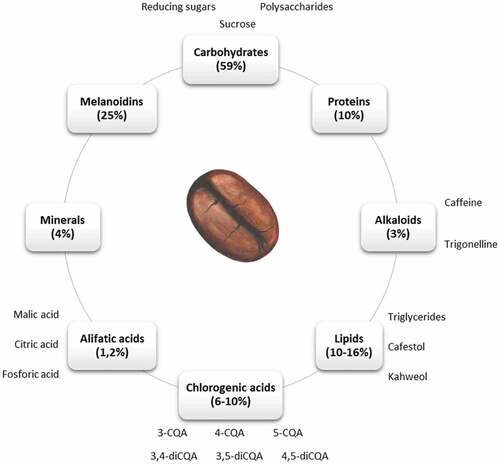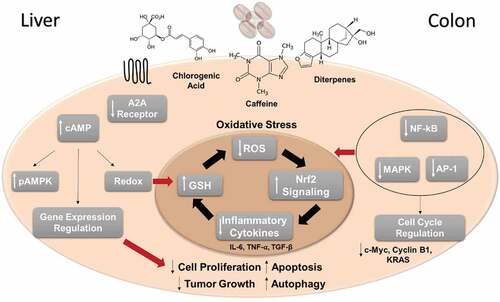Figures & data
Figure 1. Main components in coffee beans. Percentages correspond to the contribution of each component to the total dry weight. 3-caffeoylquinic acid (3-CQA), 4-caffeoylquinic acid (4-CQA), 5-caffeoylquinic acid (5-CQA), 3,4-dicaffeoylquinic acid (3,4-diCQA), 3,5-dicaffeoylquinic acid (3,5-diCQA), 4,5-dicaffeoylquinic acid (4,5-diCQA)

Table 1. Epidemiological association between coffee and CRC
Table 2. Experimental evidence of the chemopreventive effect of coffee against CRC
Table 3. Epidemiological evidence of the chemopreventive effect of coffee against HCC
Table 4. Experimental evidence of the chemopreventive effect of coffee against hepatocellular carcinoma
Figure 2. Overview of the molecular mechanisms involved in the chemoprotective effect of coffee in CRC and HCC. The main experimental findings related to caffeine, chlorogenic acids and/or coffee diterpenes are summarized. Liver-specific effects are shown on the right and CRC specific effects are shown on the left. Oxidative stress mechanisms play a central role in the chemopreventive effect of coffee, in the negative regulation of cell proliferation and tumor growth, as well as increasing apoptosis and autophagy

